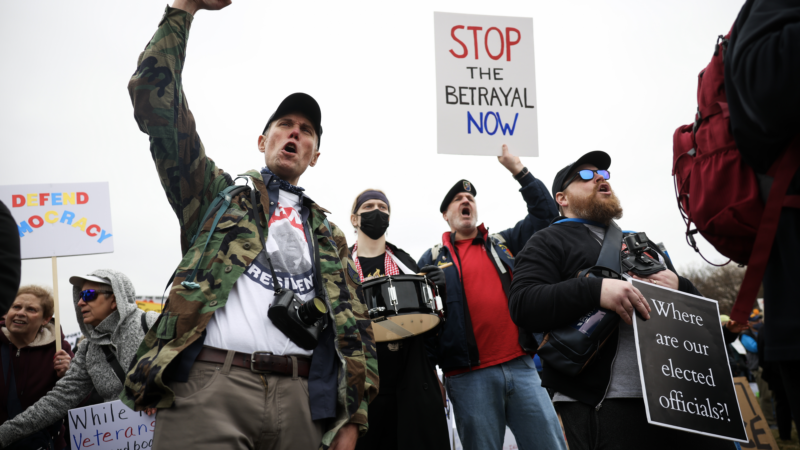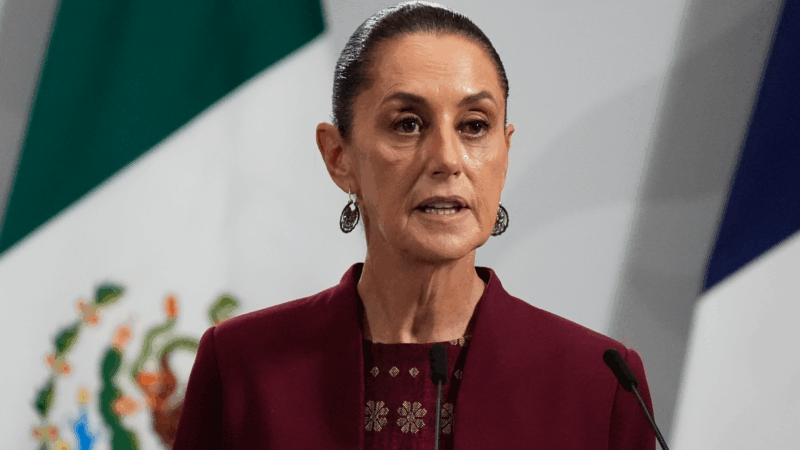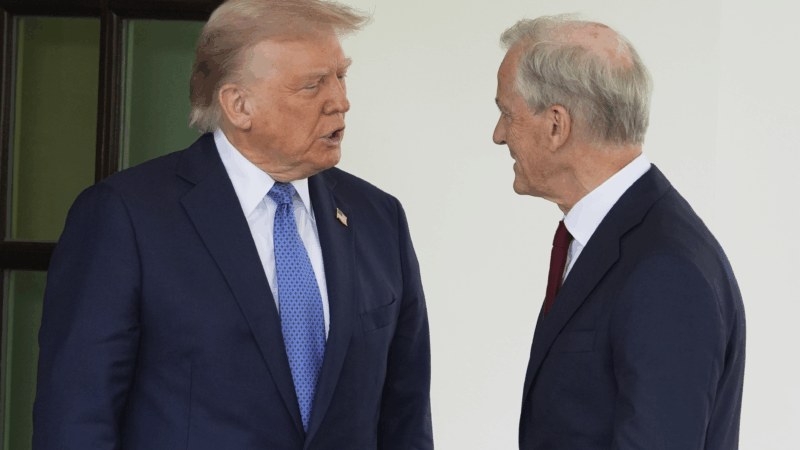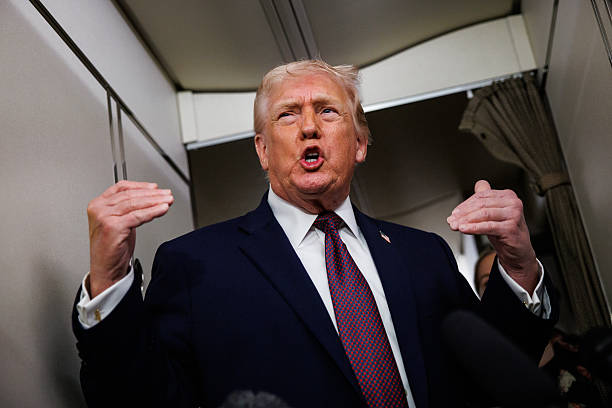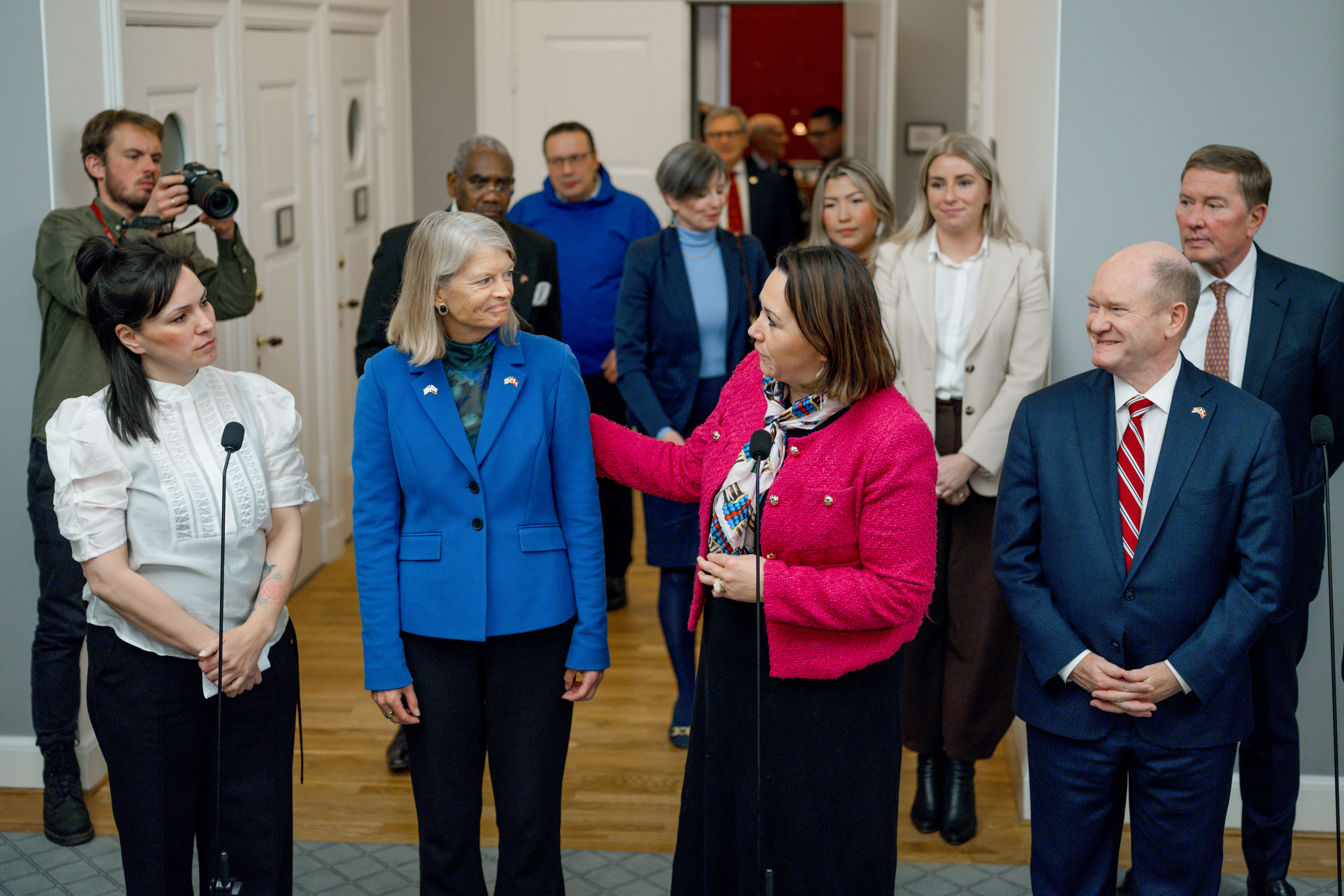Trump’s back-to-office order will hurt veterans, VA docs and therapists say
As the Department of Veterans Affairs calls staff working in telehealth into offices across the country, a widespread concern about lack of space has emerged. The change will compromise medical ethics and patients’ privacy, clinicians and advocates at multiple VA locations told NPR.
Telehealth has become common in recent years among medical professionals — especially for mental health therapists — and the VA hired many clinicians on a remote basis. The practice allowed the VA to expand its reach of mental health services into rural areas.
Now, many say, leadership at the VA has described a working arrangement in which they will still be doing telehealth from open spaces in VA facilities. The VA leaders describe the proposed arrangement like a call center.
“What we’ve heard is that there’s not even enough room for each person to come in one day a week, let alone five,” says H, a mental health clinician who asked to be identified only by her initial, for fear of losing her job. “We’ve been told they’re cleaning out closets, they’re looking into purchasing headsets.”

H and other mental health providers interviewed for this story say they don’t see a way – even with the best headsets available – to provide patient privacy while practicing telehealth from an open space.
In an email response, VA spokesperson Peter Kasperowicz called privacy concerns “nonsensical.”
“VA is no longer a place where the status quo for employees is to simply phone it in from home,” Kasperowicz writes.
A federal law known as HIPAA, which stands for the Health Insurance Portability and Accountability Act, protects patient privacy, and clinicians say meeting it is the minimum they need to see from the VA. “People need to know that they have privacy and confidentiality, both from a HIPAA standpoint, but in order to do high quality psychotherapy work, both parties need to be fully concentrated and not worried about censoring themselves,” says H.
It is not only mental health clinicians who have concerns.
“There’s a lot of talk about sexual health,” says Paige, a physician at the VA, who asked to be identified by her middle name, for fear of being fired. Paige says there are many different kinds of clinicians throughout the department who regularly need to have delicate conversations with patients.
”Those are not things that any of us wanna talk about, with another person nearby,” she says.
Kayla Williams, a senior policy advisor for an organization called VoteVets, says this policy change is not in line with the historic ethos of the agency to take good care of veterans.
“Unfortunately, the emphasis in this current moment does not seem to be on providing that highest quality care, but figuring out ways to cut the size of the department,” Williams says.
The VA has cut hundreds of probationary positions – then reversed some decisions – while VA Secretary Doug Collins forecasted tens of thousands more additional jobs would be eliminated. Williams says that between the job cuts and the back-to-office order, VA workers are dispirited.
“I hear from someone almost every day who tells me that they and their colleagues are crying,” says Williams.
VA spokesperson Kasperowicz said in his email response that the organization would make space accommodations in order to ensure veterans’ access to care would remain uninterrupted and HIPAA compliant.
Veterans are disproportionately likely to die by suicide, compared to the rest of the population. The VA increased mental health staff by more than 50 percent in recent years, in response to the recognition of a growing need. But data show the estimated wait for a mental health care appointment can still be as long as 45 days.

Clinicians say the VA’s reassurances are little comfort. Some worry they could lose their medical license for providing care in these conditions. They also wonder, if this boundary was crossed, what would be the next one.
H, the mental health professional, says she is concerned the change will lead to more loss of staff — and ultimately compromised care — for veterans. She says she is worried her colleagues will “simply will leave the VA,” she says, “because that’s not a workable solution.”
Have information you want to share about the ongoing changes across the federal government? Katia Riddle is available through encrypted communications on Signal at Katia.75
Transcript:
AILSA CHANG, HOST:
Employees at federal agencies who work remotely are being called back into the office under the Trump administration. At the Department of Veterans Affairs, some doctors and therapists are concerned that this change will compromise their patients’ privacy. NPR’s Katia Riddle reports.
KATIA RIDDLE, BYLINE: Conversations between doctors and patients can get quite personal. That’s true at the VA as much as any medical facility.
PAIGE: There’s a lot of talk about sexual health and what are people doing in their sex lives.
RIDDLE: This woman is a physician at the VA. She asked that we only use her middle name, Paige. She’s afraid of losing her job for speaking out. She says there are a lot of different kinds of clinicians throughout the agency that need to regularly have these delicate conversations with patients.
PAIGE: Those are not things that any of us want to talk about with another person nearby.
RIDDLE: Many VA clinicians all over the country were hired on a telehealth basis. It’s a way to expand VA health care and especially helpful for reaching rural areas. Therapists say there simply is not enough private space in VA buildings to have confidential sessions. This woman is a mental health clinician at the VA. She asked to be identified by an initial, H, for fear of being fired for speaking out.
H: What we’ve heard is there’s not even enough room for each person to come in one day a week, let alone five days a week.
RIDDLE: H says she and her team have all been instructed to prepare to return to work in person instead of doing telehealth from home. However, in many instances, they will still be doing telehealth, just from a shared office space.
H: We’ve been told that they’re cleaning out closets. They’re looking into trying to purchase headsets.
RIDDLE: Even with the best headsets in the world, she says, there is no way to conduct productive therapy sessions from an open space. This is not just an ethical question. It’s also a legal one. That’s because of a federal law known as HIPAA that protects patient privacy.
H: People need to know that they have privacy and confidentiality, both from a HIPAA standpoint, but in order to do high-quality psychotherapy work, both parties need to be fully concentrated and not worried about censoring themselves.
RIDDLE: Some say this policy change is not in line with the ethos of the agency. Kayla Williams is a senior policy adviser for an organization called VoteVets.
KAYLA WILLIAMS: Unfortunately, the emphasis in this current moment does not seem to be on providing that highest quality care but figuring out ways to cut the size of the department.
RIDDLE: The VA has cut hundreds of positions and are looking to cut tens of thousands more. Williams says between the back to work order and these cuts, people there are dispirited.
WILLIAMS: I hear from someone almost every day who tells me that they and their colleagues are crying.
RIDDLE: In an email response to this story, VA spokesperson Peter Kasperowicz called the concern around HIPAA compliance, quote, “nonsensical,” and said, quote “VA is no longer a place where the status quo for employees is to simply phone it in from home.” He went on to say VA would make space accommodations in order to ensure veterans’ access to care would remain uninterrupted and HIPAA compliant. These clinicians say they are not reassured and are concerned they will lose a lot of colleagues. Here’s H again.
H: That they simply will leave the VA because that’s not a workable solution.
RIDDLE: Some people are even worried they could lose their medical license for providing care in these conditions. They’re drawing their own ethical red lines in their minds, balancing concern for themselves and their patients. Katia Riddle, NPR News.
(SOUNDBITE OF CHUVA PARA DORMIR’S “BEBIDAS DE DUNAS”)
Italian fashion designer Valentino dies at 93
Garavani built one of the most recognizable luxury brands in the world. His clients included royalty, Hollywood stars, and first ladies.
Sheinbaum reassures Mexico after US military movements spark concern
Mexican President Claudia Sheinbaum quelled concerns on Monday about two recent movements of the U.S. military in the vicinity of Mexico that have the country on edge since the attack on Venezuela.
Trump says he’s pursuing Greenland after perceived Nobel Peace Prize snub
"Considering your Country decided not to give me the Nobel Peace Prize… I no longer feel an obligation to think purely of Peace," Trump wrote in a message to the Norwegian Prime Minister.
Trump has rolled out many of the Project 2025 policies he once claimed ignorance about
Some of the 2025 policies that have been implemented include cracking down on immigration and dismantling the Department of Education.
U.S. lawmakers wrap reassurance tour in Denmark as tensions around Greenland grow
A bipartisan congressional delegation traveled to Denmark to try to deescalate rising tensions. Just as they were finishing, President Trump announced new tariffs on the country until it agrees to his plan of acquiring Greenland.
Can exercise and anti-inflammatories fend off aging? A study aims to find out
New research is underway to test whether a combination of high-intensity interval training and generic medicines can slow down aging and fend off age-related diseases. Here's how it might work.

